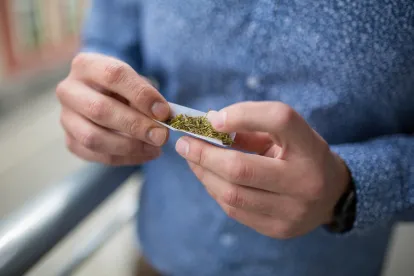Employers cannot afford to ignore the direct impact of the 2019 amendments to the law permitting legal medicinal marijuana use in New Jersey. Among the most important areas of concern, employers must be prepared to (1) create policies that will comply with federal, state and local laws, as well as maintain a safe workplace and (2) respond to a potential increase in positive drug tests and the resultant challenges to any employer action taken in response to a positive test result (e.g., denial of employment for an applicant or termination of the employment of a current employee).
New Jersey’s former Compassionate Use of Medical Marijuana Act (CUMMA) contained language stating:
[N]othing in [CUMMA] shall be construed to require… an employer to accommodate the medical use of marijuana in any workplace. N.J.S.A. 24:6I-14.
On July 2, 2019, Governor Murphy signed into law the Jake Honig Compassionate Use Medical Cannabis Act, N.J.S.A. 24:6I-2, et seq. (Honig Act), which replaced CUMMA. The revised employment law provisions of the Honig Act create job protections. The above-cited language from CUMMA changed, and the Honig Act provides as follows:
It shall be unlawful to take any adverse employment action against an employee who is a registered qualifying patient based solely on the employee’s status as a registrant with the commission [i.e., the Cannabis Regulatory Commission established pursuant to the law].
The Honig Act defines “adverse employment action” as “refusing to hire or employ an individual, barring or discharging an individual from employment, requiring an individual to retire from employment, or discriminating against an individual in compensation or in any terms, conditions, or privileges of employment.” N.J.S.A. 24:6I-3. State regulations were adopted to support CUMMA (N.J.A.C. 8:64-1 et seq.) but no new regulations were promulgated in furtherance of the Honig Act.
The patient/employee-friendly provision moves New Jersey into the group of states with medical marijuana laws that expressly provide employment law protections for medical marijuana users (e.g., Arizona, Arkansas, Connecticut, Delaware, Illinois, Maine, Minnesota, New York, Nevada, Oklahoma, Pennsylvania, Rhode Island and West Virginia).
The Honig Act establishes a procedure employers must follow when an employee tests positive for marijuana. If an employee (or prospective employee) tests positive for cannabis, the employer is required to (1) provide written notice of the right to provide a valid medical explanation for the test result and (2) offer an opportunity to present a valid medical explanation for the result. N.J.S.A. 14-6I-9.
The employee or applicant has three (3) working days after receipt of the employer’s written notice to explain the result or request a retest of the original sample (at the employee’s expense). The Act does not define “working days.” A valid explanation for the positive test result may include an authorization for medical cannabis issued by a health care practitioner or proof of registration with the medical marijuana commission.
If an employee demonstrates she is a valid medical marijuana user, employers will not be permitted to use that alone as a basis to take adverse employment action, unless the employer can demonstrate that one of the federal exemptions applies.
The Honig Act permits employers to take adverse action if an employee possesses or uses an intoxicating substance during work hours, or if such use would require an employer to commit any act that would cause the employer to be in violation of federal law.
“Cannabis” has the meaning given to “marijuana” in section 2 of the New Jersey Controlled Dangerous Substances Act, N.J.S.A. 24:21-2. The NJ Controlled Dangerous Substance Act includes cannabis as a Schedule I(e) hallucinogenic that has a high potential for abuse, has no accepted medical use in treatment in the United States, or lacks accepted safety for use in treatment under medical supervision. Accordingly, we assume “intoxicating substances” includes medical marijuana as it’s used in the Honig Act.
Nothing in the Honig Act requires an employer to commit any act that would cause the employer to be in violation of federal law, lose a licensing-related benefit pursuant to federal law, or lose a federal contract or federal funding. For example, most federal contractors are required to comply with the federal Drug-Free Workplace Act (DFWA), which precludes the possession or use of controlled substances at work sites. 41 U.S.C. §8101(a)(5)(B).
Future lawsuits surrounding marijuana use are likely to be focused on the types of reasonable accommodations employers should make and what jobs are too safety-sensitive to permit an accommodation for medical marijuana use. Due to the Honig Act’s infancy, it is not clear if New Jersey courts will follow precedent from other states imposing a burden on the employer to engage in an interactive process with the employee to determine if there are medical alternatives that are equally effective, and the use of which would not violate company policy.
In some other states, when there are no equally effective alternatives, the employer bears the burden of proving that the use of a medication would cause an undue hardship to the employer’s business to justify the employer’s refusal to make an exception to an anti-drug policy. In addition, the use of medical marijuana may be for an underlying condition meeting the definition of a disability, a condition that affords job protections, including the need to engage in the interactive process seeking to reach a reasonable accommodation.
For example, in Massachusetts, an employer may be able to show an undue hardship exists where accommodating the medical marijuana use would impair the employee’s performance of her work; pose an unacceptably significant safety risk to the public, the employee or fellow employees; or violate an employer’s contractual or statutory obligation and thereby jeopardize its ability to perform its business. We do not yet know how New Jersey will interpret what constitutes an undue hardship in accommodating an employee’s medical marijuana use.
On March 27, 2019, New Jersey’s Appellate Division, the second-highest court, issued an unpublished opinion in Wild v. Carriage Funeral Holdings, Inc. et al., A-3072-17T3 (March 27, 2019). Mr. Wild appealed dismissal of his lawsuit against his former employer alleging various Law Against Discrimination (LAD) violations and common-law defamation. His lawsuit claimed his employer discriminated against him for his use of medical marijuana, which he used as part of his cancer treatment. Both parties pointed the Appellate Division to the fact that “nothing” in CUMMA requires an employer to accommodate a medical marijuana user. Based on that the defendants argued, the plaintiff’s claims under the LAD could not go forward.
The Wild court analyzed whether the plaintiff pleaded a case under the LAD; it did not weigh and analyze proofs. The court concluded the plaintiff set forth allegations necessary to his cause of action and the matter was reversed and remanded for further proceedings. The Appellate Division held CUMMA’s declaration should not be construed to “require” an accommodation, but does not mean such a requirement might not be imposed by other legislation. N.J.S.A. 24:6I-14. Further, the court concluded that CUMMA’s refusal to require an employment accommodation for a user does not mean CUMMA immunizes employers from obligations already imposed elsewhere. Essentially, CUMMA does not limit the LAD by permitting an employer’s termination of a cancer patient’s employment by discrimination without compassion.
The Appellate Division rejected the argument CUMMA and the LAD are in conflict because CUMMA states that “nothing in this act shall be construed to require … an employer to accommodate the medical use of marijuana in any workplace.” N.J.S.A. 24:6I-14. CUMMA intended to cause no impact on existing employment rights; CUMMA neither created new employment rights nor destroyed existing employment rights. CUMMA imposes no burden on defendants, and negates no rights or claims available to a plaintiff under the LAD.
The New Jersey Supreme Court agreed to review the case and heard oral argument on February 4, 2020. The State Supreme Court is considering the impact of the Honig Act’s amendments providing employment protections to medical marijuana users. Because the Honig Act was passed after the events leading to Wild’s termination, it is unclear how it will affect his case on appeal. The Court may address whether the Honig Act, as amended, grants employees a private right of action, and, if so, whether the amendments are retroactive. We anticipate the Supreme Court’s decision within the next three to six months.
While the Honig Act grants employee protections, it is likely that employees still will seek to bring suits under the LAD as a continued source of protection because, unlike the Honig Act, the LAD allows the possibility for punitive damages and contains a fee-shifting provision.
For now, employers should, at a minimum, make sure they comply with the notice and communication provisions in the Honig Act when an employee/applicant tests positive.




 />i
/>i
